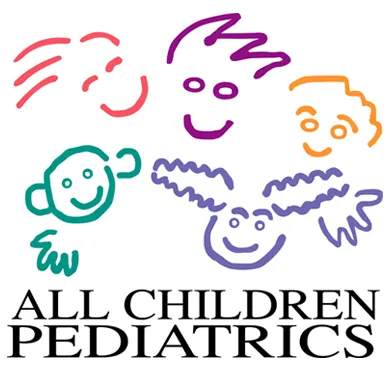Sleep
- posted: Aug. 01, 2018
By Dr. Claire Cowley, FAAP, CLC
"Sleep with the fishes", "to sleep per chance to dream", "sleep like a baby", "sleep on it", "beauty sleep". Sleep is monumental and essential as in this Irish Proverb: "A good laugh, a long sleep are the best cures in a doctor's book". Did you know animals would die of sleep deprivation before starvation? So sleep is important for our looks, our health, both mental and physical; philosophers, writers and most everyone agree. Thomas Edison wrongfully, we now know, disagreed "sleep is an absurd waste of time". Americans now sleep about two hours less than they did a century ago with alarming consequences. Underslept people are more moody, irritable, and irrational. Sleep deprived suspects held by the police, it's been shown, will confess to anything in exchange for rest. Lack of sleep in adults is associated with hypertension, obesity, type 2 diabetes, changes in cognitive function, increased heart disease and increased dementia risk.
In children sleep deprivation mimics ADHD (Attention Deficit Hyperactivity Disease) and is associated with depression, bedwetting, behavioral issues and growth disturbance.
How much sleep do children need? Toddlers and preschoolers need about 11-13 hours, perhaps 11 at night and 2 hours of napping. The napping may be no more than a quiet time; grade schoolers need 9-12 hours and teens through early adulthood need 8-10 hours.
Parents note sometimes that a child past their bedtime has a hard time settling down and may fight sleep and for those, an earlier bedtime may be appropriate. Usually a bedtime between 7 and 8pm is appropriate with waking between 6:30 and 7:30am. Kids that are more tired fight sleep and naps and exhibit some negative behaviors like defiant behavior, being accident prone and excessive talking. Watch for the earliest signs of sleepiness; rubbing their eyes, lack of focus, yawning or crankiness. Wait too long and you'll see a child who is wired, jumpy, frantic and a lot harder to get down.
Adolescents are a whole different set of issues: so many activites and cell phones and other devices practically attached to their bodies. Overscheduling, jobs, and homework make it difficult to get enough sleep. During sleep we produce growth hormone which we need in youth to attain full growth and througout our lives to service all of our body systems.
One of the best things we can do as parents in this regard is model good sleep hygiene ourselves, by making good habits a family priority. Look at the time a child needs to be up in the morning and plan backwards to get the proper amount of sleep.
A wise college student told me this past week that they noticed when they studied prior to a reasonable bedtime and got a good night's sleep they did better on testing than cramming all night. Our waking brain collects information and our sleeping brain consplidates, edits and stores it. Think of our high achieving, fast track bright adolescents getting 5 and 6 hours of sleep on school nights; they risk depression, obesity, hypertension, ADHD like symptoms and more accidents due to loss of alertness. In the United States on the Monday after Daylight Savings Time changes, there's a jump in fatal car crashes and heart attacks by 25%.
Melatonin is available over the counter and is suggested even by some physicians to promote good sleep. Do we really need it? Our levels surge at about 6 months of age and decline after age 50. Circadian rhythm is the natural sleep wake cycle set up by light and dark to which the brain responds by releasing melatonin, signalling our brain to sleep. Healthy humans without organic brain issues, circadian rhythm disturbances (like blindness or jet lag), ADHD or autism shouldn't require extra melatonin. Rather, a regular bedtime, a pre-bedtime routine which does not include stimulating activities like TV or rough play, a routine in which the parent is not in the room when the child falls asleep is best. No caffeinated beverages for 6 hours prior to bedtime and no screen time 1 to 2 hours prior to bedtime. The routine should be 20-45 minutes and might involve 3-4 soothing activities like bathing, changing to pajamas and reading stories. The child goes to bed drowsy but awake. A consistent bedtime helps to reinforce our natural circadian rhythm and fall asleep more easily, security at a very basic level.
Think of the homeless kids in our community trying to get an education while sleeping in cars, shelters and unstable situations. Think of the attributes of the sleep deprived child; it's no wonder they have issues in school. In closing, I have included an excellent link with a table to summarize good sleep hygiene. Sources: The American Academy of Pediatrics, National Geographic, UpToDate and the online resource "Sleep Lady".
https://www.nationalgeographic.com/magazine/2018/08/science-of-sleep/

This website includes materials that are protected by copyright, or other proprietary rights. Transmission or reproduction of protected items beyond that allowed by fair use, as defined in the copyright laws, requires the written permission of the copyright owners.
Contact Us
DO NOT SUBMIT MEDICAL QUESTIONS-PLEASE CALL (502) 244-6373
Hours of Operation
Our Regular Schedule
7:30 am - 6:00 pm
7:30 am - 6:00 pm
7:30 am - 6:00 pm
7:30 am - 6:00 pm
7:30 am - 5:00 pm
8:30 am - 12:00 pm
Closed
Our Location
All Children Pediatrics
400 Blankenbaker Parkway Suite 200
Louisville, KY 40243
(502) 244-9860
